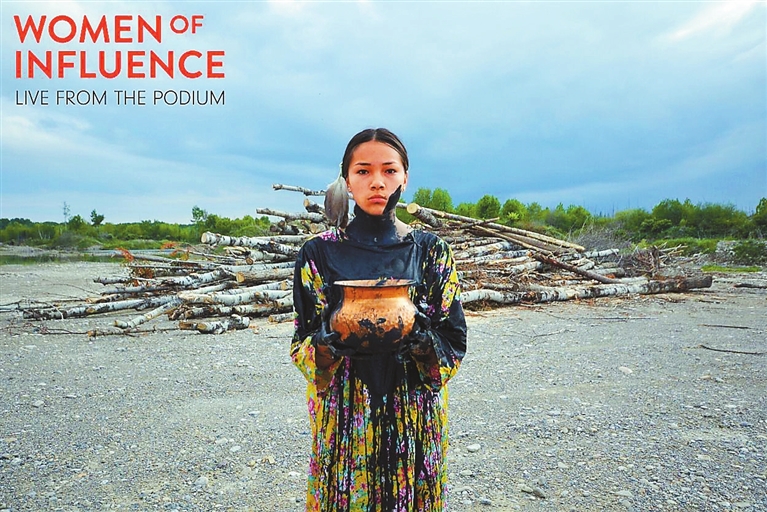
In 2016, 12-year-old Autumn Peltier of Manidoowaaling (Manitoulin) Island in Ontario stood onstage at the winter gathering of the Assembly of First Nations in Gatineau, Quebec, Canada. She wore an Anishinaabe water dress, made painstakingly by her mother, and held a water bundle, comprising a copper bowl, a copper cup, some red cloth and tobacco, to present to Canadian Prime Minister Justin Trudeau. Peltier, who is a member of Wiikwemkoong First Nation, is now a famous teen activist — but her plea to Trudeau to protect the water shot her to international recognition. Four years later, Peltier is the chief water commissioner for Anishinabek Nation, has been nominated for the Children’s Peace Prize three years in a row and last year was the only Canadian on the BBC’s list of 100 most influential women. Peltier spoke with Canadian Geographic on water protection, youth activism and her ties to the water. On the reason of water protection When I was 8, I attended a water ceremony in Serpent River First Nation. I went to the washroom and all over the walls were signs that said, “Don’t drink the water. Water is not for consumption.” We had to use hand sanitizer after using the washroom. My mom explained to me that people there had to boil the water before using it. That hit me. There are kids my age and younger not knowing what it’s like to drink clean water from a tap. I had to do something about it. On her 2016 confrontation with Prime Minister Justin Trudeau I was 12 years old and Trudeau had recently gone ahead with the Kinder Morgan pipeline — after promising First Nation Peoples that he was going to do better for them. To me, that’s a broken promise, so I had to tell him off. I said, “I’m very unhappy with the choices you made and broken promises to my people.” He said he understood and that he’d protect the water. I don’t think he should have made that promise, because now I’m going to hold him accountable. On addressing world leaders at the UN the very next year Addressing world leaders is not something I ever expected to do at 13. I stopped being nervous after the first couple of years of speaking to audiences. And I knew this was my chance to get my message out to the world. I’m really happy that I have this platform because I’m able to speak up for these First Nations communities on an international level. Everyone deserves clean drinking water. It’s a basic human right. On women as water activists In my culture, my people believe that water is one of the most sacred elements. It’s something we honor. My people believe that when we’re in the womb, we live in water for nine months and our mother carries us in the water. As a fetus, we learn our first two teachings: how to love the water and how to love our mother. As women, we’re really connected to the water in a spiritual way. Another way to look at it is that water is the lifeblood of Mother Earth, and Mother Earth is female. On the importance of youth In the past few years there’s a lot more people my age and younger that are standing up. I strongly encourage the youth to stand up because we are the future leaders. There are people that say, “she can’t do this, what she’s saying doesn’t matter because she’s only 15 years old.” But I think the only reason I got this much attention is because of how old I am. So I think what I’m doing is really good and I feel like more youth do need to stand up. On the future I’m kind of stuck between two different aspirations. I want to be a politician, as I’d have a stronger voice to be able to speak about First Nations communities and the global water crisis on a stronger, higher platform. At the same time, I actually want to be a pediatrician because of my younger sister. I really want to do both of them. (SD-Agencies) | 
